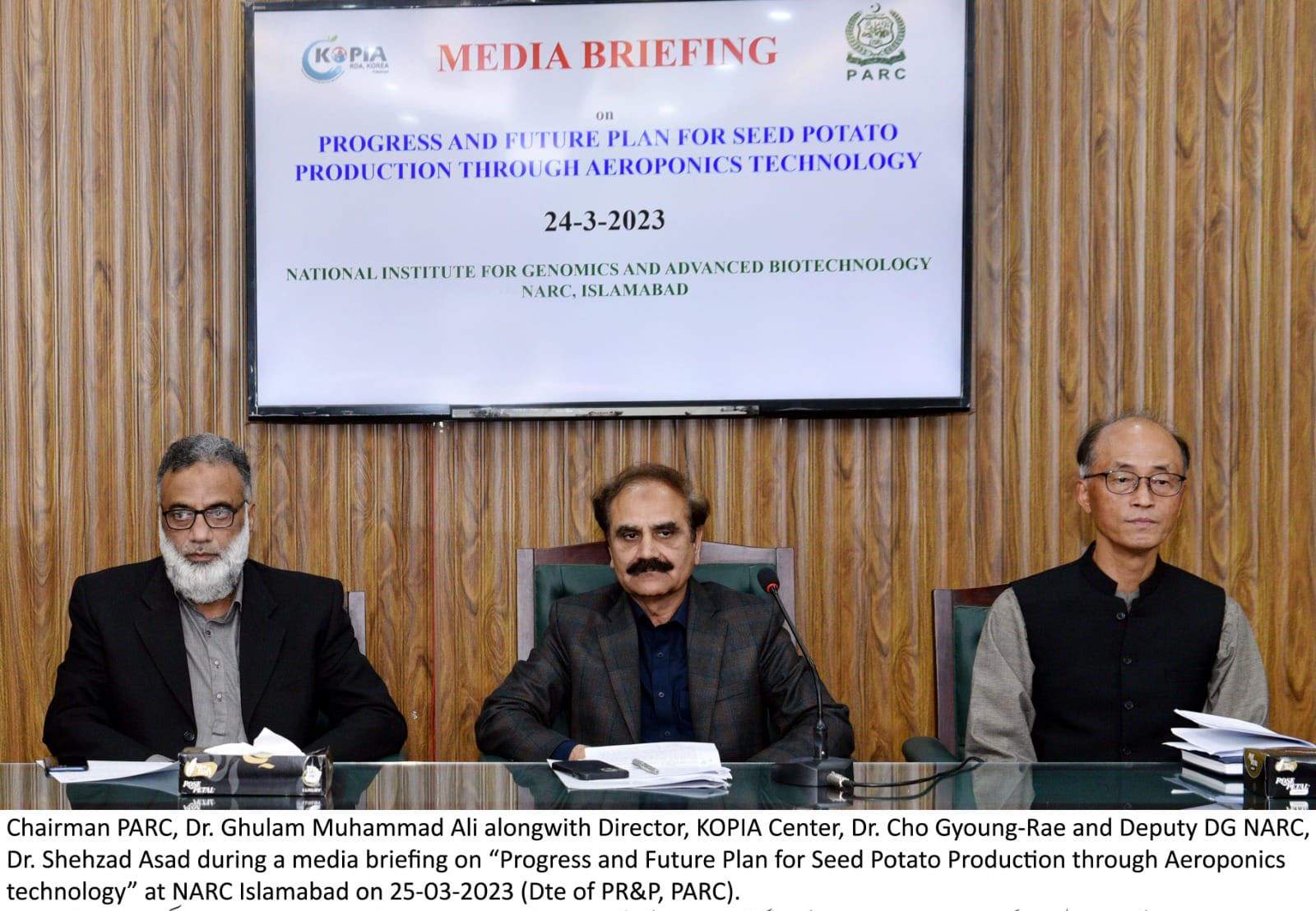Pakistan Agricultural Research Council (PARC) and Korean Program on International Agriculture (KOPIA) held a Media briefing on “Progress and Future Plan for Seed Potato Production through Aeroponics technology”. A joint Project between KOPIA and PARC at NARC Islamabad. Pakistan and Republic of Korea are working jointly on seed potato production through Aeroponics technology. 2nd crop is ready to harvest at PARC-National Agricultural Research Centre Islamabad. PARC and KOPIA are collaborating on a project for Aeroponic Potato Seed Production System. The goal of achieving higher productivity, reducing post-harvest losses, promoting farm-level processing, developing human resources, and creating significant job opportunities.
Potato is one of major cash crop of the country and during 2022 it was cultivate on an area 0f 313,000 ha with total production of 7937,000 tones.
In Pakistan, potato seed is primarily import from Holland. Where it is not only expensive but also of the fifth generation or higher. Pakistan imports approximately 12,000 to 15,000 tonnes of potato seed each year, at a cost of Rs. 2-3 billion. The use of this technology to produce seed locally will help to reduce the import bill.
During the event, Dr. Ghulam Muhammad Ali, Chairman PARC, expressed gratitude towards the Korean government and KOPIA team for their efforts in establishing Aeroponic technology for potato seed production at NARC Islamabad.
Dr. Ali emphasised the importance of potatoes as a critical crop around the world. As well as the need for research initiatives to promote indigenous seed production in Pakistan, reducing heavy imports. He also mention that over 30% of the seed requirement can be met from tissue culture labs already operating at NARC. Private sector involvement in seed production is crucial due to its potential for business growth. Dr. Ali further highlighted the importance of the agriculture sector for economic growth in Pakistan and the need to preserve fertile land for future food demands. Following the briefing, media representatives were given a tour of NARC’s Aeroponic greenhouses and briefed on seed production technology.
During the briefing, Dr. Cho Gyoung-Rae, Project Director of KOPIA, provided an update on the progress of the potato seed production project. According to Dr. Gyoung-Rae, the project’s goal is to build more greenhouses at NARC to produce 400,000 nucleus seed potatoes. These seeds will then be multiply in 35 greenhouses, yielding 4,000,000 first-generation seed potato tubers suitable for large-scale cultivation. Within five years, the project hopes to produce 150,000 tonnes of high-quality fourth-generation seed potatoes.
